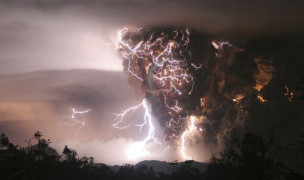 21 Terms
21 TermsHome > Terms > Kazakh (KK) > сюрреализм
сюрреализм
Movement launched in Paris in 1924 by French poet André Breton with publication of his Manifesto of Surrealism. Breton was strongly influenced by the theories of Sigmund Freud, the founder of psychoanalysis. Freud identified a deep layer of the human mind where memories and our most basic instincts are stored. He called this the unconscious, since most of the time we are not aware of it. The aim of Surrealism was to reveal the unconscious and reconcile it with rational life. The Surrealists did this in literarature as well as art. Surrealism also aimed at social and political revolution and for a time was affiliated to the Communist party. There was no single style of Surrealist art but two broad types can be seen. These are the oneiric (dream-like) work of Dalí, early Ernst, and Magritte, and the automatism of later Ernst and Miró. Freud believed that dreams revealed the workings of the unconscious, and his famous book The Interpretation of Dreams was central to Surrealism. Automatism was the Surrealist term for Freud's technique of free association, which he also used to reveal the unconscious mind of his patients. Surrealism had a huge influence on art, literature and the cinema as well as on social attitudes and behaviour.
- Part of Speech: noun
- Synonym(s):
- Blossary:
- Industry/Domain: Art history
- Category: General art history
- Company: Tate
- Product:
- Acronym-Abbreviation:
Other Languages:
Member comments
Terms in the News
Featured Terms
phylum placozoa
Macroscopic, flattened marine animals, composed of ventral and dorsal epithelial layers enclosing ...
phylum cnidaria
Cnidarians. Hydras, hydroids, jellyfish, sea anemones, and corals. Free-swimming or sessile, with ...
share a term with millions
Share a term with millions of users around the world and increase your online visibility.Share a ...
oak
Genus native to the Northern Hemisphere with spirally arranged leaves, catkins for flowers and ...
Everest
The last but not least mount Everest. The Earth's highest mountain, with a peak at 8,848 metres ...
aglaonema
Genus of about 20 species of usually rhizomatous, evergreen perennials from tropical forest in Asia. ...
Robojelly
Robojelly is a hydrogen-powered robot desgined in the United States that moves through the water ...
Ferdinand Porsche
Ferdinand Porsche (3 September 1875 – 30 January 1951) was an Austrian-German automotive engineer ...
Marzieh Afkham
Marzieh Afkham, who is the country’s first foreign ministry spokeswoman, will head a mission in east ...
define1
Share a term with millions of users around the world and increase your online visibility.Share a ...
Contributor
Featured blossaries
Browers Terms By Category
- Biochemistry(4818)
- Molecular biology(4701)
- Microbiology(1476)
- Ecology(1425)
- Toxicology(1415)
- Cell biology(1236)
Biology(22133) Terms
- Biochemistry(4818)
- Genetic engineering(2618)
- Biomedical(4)
- Green biotechnology(4)
- Blue biotechnology(1)
Biotechnology(7445) Terms
- Wireless networking(199)
- Modems(93)
- Firewall & VPN(91)
- Networking storage(39)
- Routers(3)
- Network switches(2)
Network hardware(428) Terms
- Advertising(244)
- Event(2)
Marketing(246) Terms
- Chocolate(453)
- Hard candy(22)
- Gum(14)
- Gummies(9)
- Lollies(8)
- Caramels(6)






